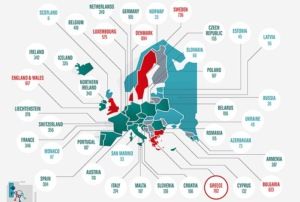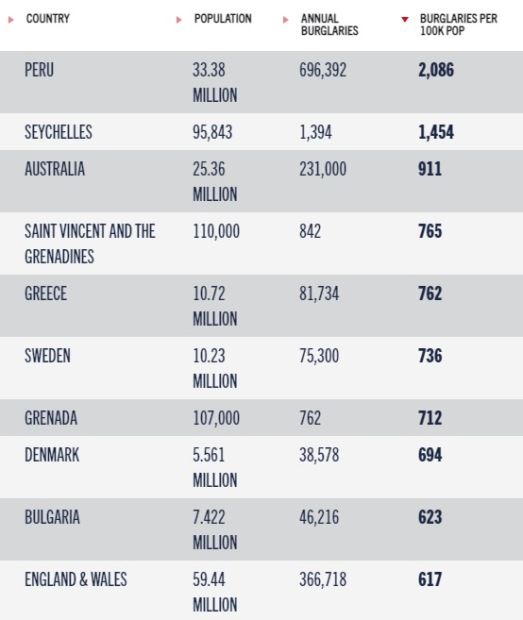News
Danes have one of world’s highest burglary rates
This article is more than 4 years old.
In Europe, only Greece and Sweden have higher rates per capita of home burglary than Denmark

Only Greece and Sweden were worse (photo: Budget Direct)
Considering how relatively safe Denmark is, it may come as a surprise that the country actually has one of the highest rates per capita of home burglary in the world.
According to Australian-based insurance firm Budget Direct, Denmark ranks eighth in the world with 694 burglaries per 100,000 people.
That figure puts the Danes third in Europe, behind only Greece (762) and Sweden (736).
By comparison, Norway only had 33 per 100,000, while Scotland had just 8!
READ ALSO: Copenhageners still feel safe despite rising crime figures in selected districts
Banging Bangladesh
Peru had the highest figure in the world at 2,086, followed by the Seychelles (1,454), Australia (911), Saint Vincent and the Grenadines (765) and then Greece.
Sweden, Grenada (712), Denmark, Bulgaria (623) and England/Wales (617) completed the top 10.
Other notables included the US (527), Canada (429), France (346), Iceland (325), South Africa (289), Germany (105), Mexico (65), Japan (29), Russia (28) and India (18).
Bangladesh had the lowest rate at just 1 per 100,000, preceded by South Korea (2) and Nigeria (3).











































